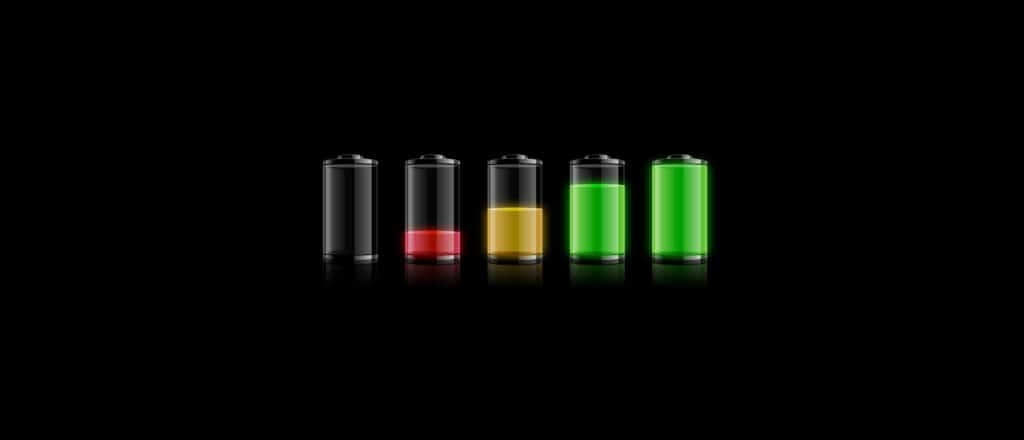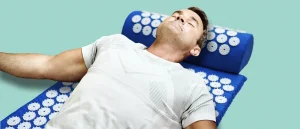You're Always Tired. Here are 5 Reasons Why.
- By Cassie Shortsleeve
- Medically reviewed by Nick Dahl, D.O.
- February 9, 2024
Fast Facts
- Fatigue is common and can be caused by lifestyle factors as well as medical conditions.
- Chronic low energy in men can be linked to low testosterone, sleep problems, anemia, and other health problems.
- Treating low energy in men can involve medical treatments and lifestyle changes.
All guys feel tired from time to time, but usually, a good workout, a good meal, and a good night’s sleep provide relief. When feelings of “tired” don’t go away, and low energy becomes an everyday occurrence, it could be a sign of full-blown fatigue. According to family medicine physician Nick Dahl, D.O., fatigue is not a disease, but rather an unrelenting feeling of exhaustion. And it’s not always easy for men to figure out what’s behind their constant low energy.
Chronic low energy in men is different from the lack of vigor you might feel after a grueling workout or staying up late on the weekend. Fatigue can make the most mundane task feel arduous. No amount of coffee will help you power through this level of energy drain. That’s because ongoing low energy is often caused by medical or lifestyle factors, some of which are unique to men.
If sluggish has become your new normal, it’s important to talk to your doctor. He or she can determine what’s behind your fatigue, and whether it could be related to one of the conditions below—these are all common causes of low energy in men. The sooner you identify what’s causing your energy levels to drag, the sooner you’ll get back to full speed.
Symptoms Of Low Energy In Men
Low energy looks different from man to man, but these are common complaints among guys who experience it:
- Sleepiness
- Exhaustion that isn’t relieved by rest
- Reduced energy, motivation, focus, or concentration
- Depression or a lack of interest in the activities you used to enjoy
- Nervousness, anxiety, irritability, impatience
- Muscle weakness, stiffness, or pain
- Tired eyes, legs, or whole-body fatigue
- General malaise or discomfort
Causes Of Low Energy In Men
A number of conditions that can lead to fatigue in men:
Low Testosterone
Testosterone is the primary sex hormone in men. During puberty, it’s responsible for things like deepening your voice and causing hair to sprout. Testosterone also helps regulate sex drive, fat burning and storage, sperm production, red blood cell production, and even your mood.
Testosterone levels decline with age (roughly 1 to 1.5 percent less per year after around age 30), but for some men, the drop is faster. When a significant drop in T levels occurs, it can cause your energy levels to plummet, along with a slew of other symptoms, including:
- Reduced sexual drive or low libido
- Loss of body hair
- Loss of muscle
- Erectile dysfunction
- Increased body fat
- Loss of strength
- Enlarged breast tissue
- Inability to concentrate
- Depression
- Low sperm count
Low T is clinically considered anything below 300 nanograms per deciliter (ng/dL) of total testosterone (total T) or free testosterone levels that are below 1 to 2 percent of your total T (1). Low T is usually marked by a constellation of symptoms: low energy, weight gain around the mid-section, brain “fogginess,” sexual difficulties, and more.
Testosterone helps your body build and maintain muscle mass. It also helps muscles pump and contract, playing a key role in your body’s energy-producing systems. Without it, your muscles won’t work at their peak abilities, you might gain fat, you’ll feel less motivated.
If your physician suspects that low T could be to blame for your lagging energy levels, testing is key. Hone’s analysis for low testosterone, along with other hormones that can impact your health. If a test indicates that you do have low T, hormone replacement therapy can help relieve your fatigue and other symptoms.
Low testosterone can zap your energy levels. Find out if your T levels are low for just $45.00 with Hone’s at-home test, which you can take from the privacy of your own home.
Nutritional deficiencies
If you’re low on essential vitamins and minerals—like B12, vitamin D, and magnesium—you may experience symptoms like fatigue, lethargy, and headache. And men are more prone to certain deficiencies.
Research shows that men are more likely to be deficient in vitamin B12 than women (5). Vitamin B12 helps maintain your nerve and red blood cells, which are essential for energy metabolism (6).
Vitamin D supports your metabolism, muscle function, and immunity (7). If you don’t get enough vitamin D, you may experience muscle weakness and pain, negatively impacting physical performance and energy.
Magnesium helps you convert the food you eat into energy by supporting digestive enzymes (8). A deficiency can lead to lower energy levels, muscle weakness, and fatigue.
To determine what nutrients you’re deficient in, your doctor may perform a blood test and recommend supplements tailored to your condition.
Hypothyroidism
The thyroid, a tiny butterfly-shaped gland at the base of your neck, creates hormones that control how well your body utilizes energy. The gland is responsible for producing the thyroid hormone, which affects your metabolism, digestion, mood, and more.
When it doesn’t produce enough thyroid hormones? You wind up with an underactive thyroid, or hypothyroidism. Some of the primary symptoms of hypothyroidism are feelings of tiredness and very low energy levels.
Think of the thyroid like the idle in your car, says Dahl. “It’s your setpoint. If your thyroid hormone levels are low, you don’t have much energy. It’s like you’re constantly in first gear; you can’t go very fast.”
Men are five to eight times less likely than women to have thyroid problems, but that doesn’t mean men are in the clear.
The most common cause of hypothyroidism is Hashimoto’s disease, an autoimmune condition where your immune system attacks your thyroid gland and damages it, resulting in symptoms like low energy, weight gain, hair loss, dry skin, constantly feeling cold, and depression.
Blood tests can diagnose hypothyroidism. If you are diagnosed with an underactive thyroid gland, medications like levothyroxine can be used to replace the thyroid hormones you’re missing.
Sleep Conditions
It’s a no-brainer that not getting enough sleep will make you feel lethargic the next day. Anyone who has pulled an all-nighter in college or who has trouble nodding off at night knows that when you don’t sleep well, your energy levels flag. But when lack of sleep is chronic, it can usher in ongoing fatigue.
More than 100 million Americans don’t regularly get the sleep they need. And it should come as no surprise that sleep disorders—insomnia, restless leg syndrome, narcolepsy—all result in fatigue. Sleep apnea in particular is a sleep-stealer for men.
Sleep apnea happens when breathing is obstructed during sleep because the tongue and throat muscles make it difficult to get enough air.
Sleep apnea can increase the risk of heart disease, dementia, mood disorders, and erectile dysfunction.
It’s true that when you don’t sleep, you don’t feel rested. But the link is more nuanced.
Poor sleep, for example, impacts diet and exercise (2), which can contribute to more fatigue. It also plays a role in mental health conditions and physical disorders. Insufficient deep sleep, for example, has been linked to heart disease, hypertension, type 2 diabetes, and low testosterone.
If you’re having trouble sleeping, talk to your doctor. “A lot of guys won’t know they have sleep apnea,” says Dahl. “They think that it’s something else because they are sleeping a lot.” If you wake up feeling unrested, or your partner tells you that you snore, it’s worth talking to your doctor, says Dahl.
Treatments vary from lifestyle changes to medications to technology like a CPAP machine, a breathing device used to treat sleep apnea.
Often, at-home strategies such as seeking more morning daylight to reset your body’s internal clock, moving throughout the day, and keeping your bedroom for just sleep help.
Iron Deficiency
About 2% of adult men suffer from iron deficiency anemia, which is when your blood lacks healthy red blood cells. Iron keeps your brain, energy production, and immune system ticking over. More importantly, it helps your body create hemoglobin, a protein that allows red blood cells to carry energizing oxygen all over the body. Without iron, you could feel gassed because red blood cells can’t do their job as well.
Only about 1 percent of US men are affected by anemia, largely because men need far less iron—around 8 mg per day as opposed to 16-18 mg for women—since they don’t menstruate. Anemia can be caused by inadequate iron intake, internal bleeding, or the inability to absorb iron.
If you don’t eat iron-rich foods such as red meat, legumes, or spinach regularly and you notice other symptoms of anemia (like feeling out of breath easily) talk to your doctor. Iron supplementation usually helps. Vitamin C enhances the absorption of iron in your body, so be sure to keep brightly-colored fruits and vegetables nearby when supplementing.
Fatigue is not a disease, it’s an unrelenting feeling of exhaustion.
Medical conditions like diabetes, heart disease
Dealing with a chronic illness can sap your energy quickly. According to the Mayo Clinic, these conditions could be the cause of your low energy levels:
- Chronic infection or inflammation
- Anxiety and depression
- Diabetes
- Heart disease
- Hyperthyroidism (overactive thyroid)
- Hypothyroidism (underactive thyroid)
- Inflammatory bowel disease (IBD)
- Liver disease
- Obesity
- Parkinson’s disease
- Arthritis
- Sleep apnea
- Brain injury
If you suspect that a medical condition could be contributing to your energy levels, bring up your concerns to your doctor.
Medication side effects
Medications that target the central nervous system—like anti-hypertensive and anti-anxiety drugs—can have a sedative effect on your brain, leading to fatigue and low energy (9).
Drugs that interact with your hormone levels can also make you feel lethargic and tired. For example, certain antidepressants and corticosteroids can impact hormones like serotonin and cortisol (10). Disruptions to these hormones can axe your energy.
If you have recently changed your medication and feel like your energy levels have taken a hit, chat with your doctor about swapping to an alternative or changing your dose.
Chronic fatigue syndrome
Chronic fatigue syndrome (CFS) also known as myalgic encephalomyelitis is a disease characterized by the extreme presence of tiredness, fatigue, cognitive dysfunction, sleep problems, autonomic dysfunction, and post-exertional malaise, which can severely impair patients’ ability to conduct activities of daily living (3). CFS doesn’t go away and can’t be linked to an underlying medical condition. Because fatigue can be tied to numerous other diseases and disorders, it’s difficult to diagnose.
But the Centers for Disease Control and Prevention (CDC) has suggested that CFS may present itself at the end stage of other conditions (like viruses, hormonal imbalances, a weakened immune system, and stress), rather than being linked to one specific condition.
Mental Health Conditions
When it comes to low energy in men, mental health plays a role. But the link between mental health conditions such as depression and anxiety and energy levels is strong—and complicated.
Research finds that a lack of sleep (which can make you tired) is a risk factor for depression and it also finds that people with depression tend to report more sleep issues. In one review published in Dialogues in Clinical Neuroscience (3), three-quarters of depressed patients reported symptoms of insomnia.
People with anxiety often don’t sleep well because their bodies overproduce hormones like adrenaline, which can cause a near-constant fight-or-flight response. The resulting fatigue can contribute to sleep issues such as insomnia, which can increase anxiety. It’s a vicious cycle.
Anxiety often gets worse at night, when there are fewer distractions to keep your mind from racing and worrying. Nighttime anxiety is a problem for many people who find that the evening hours that are supposed to be relaxing are instead filled with worry and apprehension.
Mental health conditions are experienced in individual ways. They are also common and highly treatable through therapy, medication, social support, or a mix of the three.
If you think your mood or emotions are tanking your energy levels, seek out the support of a mental health provider via your insurance’s website or through a referral from your primary care doctor. Today, many mental health professionals also see patients via telehealth.
Fixes for Low Energy in Men
Depending on what’s causing your low energy, you might need medical treatment. But simple lifestyle changes can also help lift energy levels, in conjunction with medical treatment or on their own. These lifestyle tweaks include:
Get more exercise
If you’re already feeling fatigued, you may not have a ton of motivation to hit the gym. But here’s why you should try to stay active: Exercise spurs your body to produce more mitochondria—the cellular powerhouse that creates fuel from the food you eat and the air you breathe. More mitochondria equal more energy.
Activity also boosts oxygen circulation in the body. This extra O2 supports mitochondrial production and helps your body use energy more efficiently. Physical activity also increases hormones like endorphins, which can make you more energized.
Drink more water
So, you’ve been pounding back energy drinks to get through the day? Going back to the basics could give you a much needed pick-me-up.
Even if you’re sipping on other beverages throughout the day, if you’re not drinking enough water you run the risk of becoming dehydrated. Mild dehydration can cause a massive reduction in energy, according to Harvard University.
Cut out junk
Sugar can give you an immediate burst of energy, but will also cause you to crash when your blood sugar eventually drops. Eating a balanced diet of foods like protein, vegetables, and whole grains will keep your blood sugar levels—and your energy—stable. Eating regular meals and snacks will also help keep energy levels balanced.
Drink in moderation
Lots of people turn to a beer or glass of wine to help them get to sleep. Alcohol is sedating, so it may help you nod off, but the effect is short-lived. Here’s why: several hours after your nightcap, the alcohol raises the body’s level of epinephrine, a stress hormone that increases the heart rate and generally stimulates the body. That can lead to you waking in the middle of the night. No wonder alcohol may be behind 10% of cases of persistent insomnia.
Alcohol also prevents you from getting enough restorative REM sleep, says Dahl. So while you may be in bed a full eight hours, you’re not getting the type of sleep that helps restore your mind and body.
Reduce screen time
Scrolling on social media before bed is tempting. But screen time before bed could actually throw off your circadian rhythm, leading to less restful sleep.
The blue light from your phone, TV, or laptop promotes wakefulness, which can mess with your sleep-wake cycle, according to the National Sleep Foundation. To avoid disrupting your sleep—and feeling sluggish in the morning—avoid using your electronics at least two hours before bed.
And if you absolutely must answer that late night text, pop on some blue light glasses.
A number of conditions, including low testosterone, hypothyroidism, anemia, and mental health issues can cause low energy in men. If you feel chronically fatigued, see your physician, who can test for these illnesses.
References
1. Huo, Samantha et al. (2016). Treatment of Men for “Low Testosterone”: A Systematic Review.
2. Briguglio, Matteo et al. (2020). Healthy Eating, Physical Activity, and Sleep Hygiene (HEPAS) as the Winning Triad for Sustaining Physical and Mental Health in Patients at Risk for or with Neuropsychiatric Disorders: Considerations for Clinical Practice.
3. Sapra A, et al. (2022). Chronic Fatigue Syndrome.
4. Nutt, David et al. (2008). Sleep disorders as core symptoms of depression.
5. Margalit, et al (2018). Vitamin B12 Deficiency and the Role of Gender: A Cross-Sectional Study of a Large Cohort.
6. NIH. Vitamin B12.
7. NIH. Vitamin D.
8. NIH. Magnesium.
9. National Library of Medicine. Antihypertensive Medications.
10. Nandem, et al (2020). Cortisol and Major Depressive Disorder—Translating Findings From Humans to Animal Models and Back
















